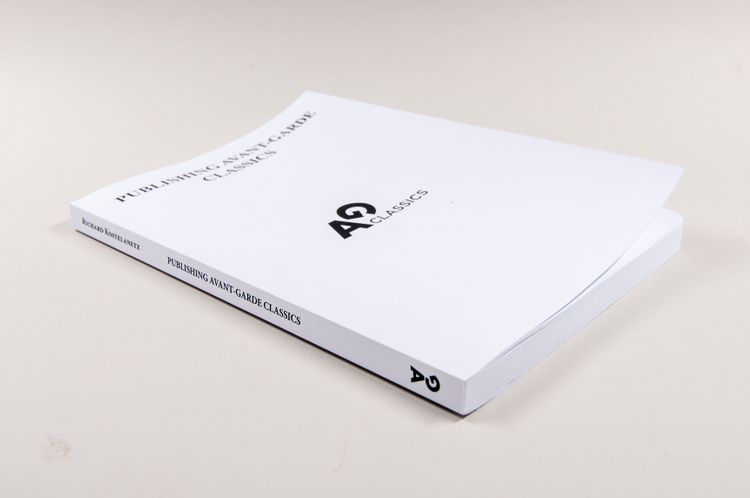After the old master of avant-garde and experimental literature Richard Kostelanetz discovered the new possibilities of self-publishing in the digital age, he used them on a large scale to reprint or first publish countless of his own works on Amazon, many of them under the label of his publishing house Archae Editions, founded in 1978 (see FICT/IONS and THIS SENTENCE).
In 2022, “in memory of Dick Higgins (1938–1998), who understood what alternative publishers had to do” (Richard Kostelanetz, Publishing Avant-Garde Classics, VI), he founded the Avant-Garde Classics series for the publication of out-of-print, marginally published, forgotten, still unpublished avant-garde works and authors, which he wanted to make (re)accessible at the lowest possible price. For this he resorts to the services of Amazon’s Kindle Direct Publishing, “because its prices could not be beaten and then because it was more likely to survive not only me but its competitors in the new business of on-demand publishing” (Ibid., VII). However, this is a risky bet on the future, after all, “Amazon prigs have rejected some Archae books (and twice even canceled all of my Archae books from its listing, only to reverse)” (Ibid., VII).
The selection of volumes for the series is largely based on personal preferences, but also on copyright considerations. Often, therefore, these are texts that are now in the public domain; otherwise, Kostelanetz specially redesigns, reintroduces, retranslates, and presents them in surprising pairings: “bringing together within a single set of covers certain texts not otherwise connected to one another” is what Kostelanetz calls “imaginative literary publishing” (Ibid., 82). In addition, the series includes discoveries of “ancient texts that retain avant-garde quality” (Ibid., X) and several works by Kostelanetz himself, to which the self-proclaimed “Earl of Wordship” likewise ascribes avant-garde status.
His introduction ends with the announcement: “I’m not done yet with books meant to survive. […] [R]ather than printing annual catalogs, AGC will put on Amazon a continually expanding book of just title pages alphabetically organized, Avant-Garde Classics, priced as cheaply as possible, natch” (Ibid., X-XI). So far, however, one finds there only the volume Publishing Avant-Garde Classics: A Retrospective Catalog, which gathers the covers and blurb texts of 106 books published (or rather supposed to have been published) between 2021 and 2023.
